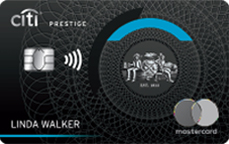- Mark as New
- Bookmark
- Subscribe
- Mute
- Subscribe to RSS Feed
- Permalink
- Report Inappropriate Content
Re: Do deposits help in getting approved?
There have been numerous specific examples that, yes, deposits can sometimes make a difference in the way our lenders treat us. Thanks to everyone who has told their stories! I've also come to believe that banking relationships can often be a tie-breaker in credit approvals, even if the deposits are small. It does depend on the lender, and YMMV, but I think it's always worth consideration. While credit unions do love relationship, it's evident that the big banks like Chase or Bank of America value it too, even if we don't have millions to invest.






















Business Cards









Length of Credit > 40 years; Total Credit Limits >$936K
Top Lender TCL - Chase 156.4 - BofA 99.9 - CITI 96.5 - AMEX 95.0 - NFCU 80.0 - SYCH - 65.0
AoOA > 31 years (Jun 1993); AoYA (Oct 2024)
* Hover cursor over cards to see name & CL, or press & hold on mobile app.
- Mark as New
- Bookmark
- Subscribe
- Mute
- Subscribe to RSS Feed
- Permalink
- Report Inappropriate Content
Re: Do deposits help in getting approved?
@Mdg1307 wrote:
@notmyrealname23 wrote:
@Mdg1307 wrote:I've been pondering the same thing. My credit is currently rebuilding from a bunch of collections and charge offs from 4 years ago. So far all collections have been removed via PFD, and 2 charge offs as well. Still I'm only 550 across the board.
I was thinking if I put 500k into a bank or cu could they overlook my score and approve a card?i currently only have an Amex optima.
If you have 500k that is lying around, why not put a few thousand of that into secured cards, and improve scores via a payment record on secured cards? Some CUs will let you do secured cards against bank deposit accounts or CDs that draw interest. Discover doesn't really do that, but their cards do allow for rewards.
Im looking to get more perks type of cards. Under non covid lockdown times, I travel a lot for both biz and pleasure, also dine out a few days a week...would like cards like Amex plat/gold, chase csr/csp...or similar from other bank/cu offerings
It's going to be really hard to get good perks cards with lousy credit, even if you put money in the bank. It still doesn't obscure the lousy credit in the 500s.
As mentioned by @Gmood1, it's very possible to be a multimillionaire who stiffs banks on the bill. Your best bet is to treat secured cards like Discover as a stepping stone for a year or two.
- Mark as New
- Bookmark
- Subscribe
- Mute
- Subscribe to RSS Feed
- Permalink
- Report Inappropriate Content
Re: Do deposits help in getting approved?
@Anonymous wrote:Hello just a general question for the community and so I can get DPs.
If you make a large deposit into a saving or checking account, and just keep it there. Does that improve your chances of getting approved for a credit card from that particular financial institution? Especially when it comes to denials of DTI?
I'm sorry if this seems like a silly question, just would like to know.
I do think a bank relationship makes a difference. Having a relationship banker advocating for you really helps as well.
Barclays: Arrival+ WEMC
Capital One: Savor WEMC, Venture X Visa Infinite
Chase: Freedom U Visa Signature, CSR Visa Infinite
Citibank: AAdvantage Platinum WEMC
Elan/US Bank: Fidelity Visa Signature
Credit Union: Cash Back Visa Signature
FICO 08: Score decrease between 26-41 points after auto payoff (11.01.21) FICO as of 12.24, EX: 813 / EQ: 825 / TU: 818
- Mark as New
- Bookmark
- Subscribe
- Mute
- Subscribe to RSS Feed
- Permalink
- Report Inappropriate Content
Re: Do deposits help in getting approved?
@coldfusion wrote:
@M_Smart007 wrote:IMHO, The only time it swayed a CU for me, Is when I had large direct deposits going into Pentagon Federal,
and it totalled over $100K .. then they gave in. I doubt any bank or CU would be swayed by a few grand.
For BoA or Chase, it would probably take a Million
At $1 million the financial advisors at the local BoA financial center(s) will make sure you know each other even if you have a self-managed portfolio. $1 million at Chase barely gets you above peon class, you start to get interesting at $2 million and $10 million makes you fairly special.
This is the big reason why I'd advise the OP to not try to deposit their way to favorable treatment. Depositing a few thousand dollars and hoping for favorable outcomes from banks is like walking into a Michelin starred restaurant, handing the maitre'd a dollar, and expecting the nice table with no reservations.
- Mark as New
- Bookmark
- Subscribe
- Mute
- Subscribe to RSS Feed
- Permalink
- Report Inappropriate Content
Re: Do deposits help in getting approved?
@Gmood1 wrote:In most cases, it doesn't matter.
Because if you show a track record of not paying your bills and they can see you have the money to pay them.
They're still going to deny you.
You have multimillionaires that can't get unsecured bank loans. lol
Sound ridiculous, but it is true.
Cash use to be king back in the day. These days good credit is king!
Having a high income or disposable income doesn't qualify you as a dependable payer or someone that can manage their bills.
One of the first places I ever worked in my professional career I had a boss who made money I could only dream of making. A really small operation, but he made seven figures yearly easy. However, he couldn't ever keep the money he made around for longer than a week or two at a time and consequently racked up a ton of debt.
It took him two years of paying that down to get approved for a Capital One Venture One (he later upgrades to a Venture). His income didn't help with his credit at all because of how poor his money management was reflected on his credit report. Furthermore, he could never even get a business card from the bank the business had its deposit account in due to his debt.
I make modest money compared to what that man did, but have only been denied a card once.
Personally, I wouldn't place money in a bank to try and get a card. I have my savings account with Amex, but it was after I had my cards with them. I like their customer service and they have a high interest rate savings.
- Mark as New
- Bookmark
- Subscribe
- Mute
- Subscribe to RSS Feed
- Permalink
- Report Inappropriate Content
Re: Do deposits help in getting approved?
I hate to tell you but it absolutely helps. Esp at smaller banks/CU. Friend of mine sold his rental property that he inherited, was worth ~450K. He left the money in a brand new checking & savings at a credit union for a while until he decided what to do with it. 585 credit score due to his divorce so nobody ever wanted to give him anything. About a week later he gets a call from the branch manager offering him a $10K limit card.
- Mark as New
- Bookmark
- Subscribe
- Mute
- Subscribe to RSS Feed
- Permalink
- Report Inappropriate Content
Re: Do deposits help in getting approved?
@Anonymous
A 585 score isn't absolutely terrible.
I've seen folks with scores lower than that obtain credit cards with limits higher than $10k from Navy Federal, with almost nothing in the accounts.😆
The scores tell only part of the story Much of it depends on what's in their credit reports. As well as overall profile.
- Mark as New
- Bookmark
- Subscribe
- Mute
- Subscribe to RSS Feed
- Permalink
- Report Inappropriate Content
Re: Do deposits help in getting approved?
@Aim_High wrote:There have been numerous specific examples that, yes, deposits can sometimes make a difference in the way our lenders treat us.
But as I have to mention whenever this topic comes up, you have to set these stories against the other many examples of "I have no relationship with bank/CU X, I cold apped for a card and got an [impressive credit limit]" and the sometimes "I've been with bank X for 10 years with [fair amount of money in account] and they STILL denied me for their card!!!!"
Personally, all of my cards come from banks I have no banking relationship with (apart from a tiny checking account at USB, opened after I got cards with them).
So I don't think there is convincing evidence either way: people get approved and denied with and without deposit accounts. And cases where "Bank X kept denying me, but then I deposited some money and they then approved me" have confounding factors such as aging of credit report, perhaps increases in salary etc.
- Mark as New
- Bookmark
- Subscribe
- Mute
- Subscribe to RSS Feed
- Permalink
- Report Inappropriate Content
Re: Do deposits help in getting approved?
So I don't think there is convincing evidence either way: people get approved and denied with and without deposit accounts. And cases where "Bank X kept denying me, but then I deposited some money and they then approved me" have confounding factors such as aging of credit report, perhaps increases in salary etc.
The question from OP is whether deposits help in getting approved -- not whether they guarantee it.
I think a lender would have to be crazy not to consider an existing relationship as a favorable, and a sizeable deposit as a risk-mitigating factor. Of course credit history will always take priority, but that doesn't mean deposits don't impact the approval and credit line decisions.
My first credit card was a Fidelity Visa issued at the time by FIA Card Services: I had no credit history whatsoever, and my income was a joke (graduate student in the very early days of the gig economy). I spoke to an agent over the phone and after a day was approved with a $1,000 credit line. It would not have been possible without the deposits I had in my Fidelity brokerage account.
A couple years ago -- out of the blue -- I charged nearly $100,000 on my Amex Platinum in a single billing period (typical spend on the card at the time was ~$1,000 per month, with occasional spikes to ~$10,000): No problems, no alerts, no calls -- I just spent the money. I imagine my Amex Bank savings account had something to do with that.



















- Mark as New
- Bookmark
- Subscribe
- Mute
- Subscribe to RSS Feed
- Permalink
- Report Inappropriate Content
Re: Do deposits help in getting approved?
@sammydavidjr wrote:So I don't think there is convincing evidence either way: people get approved and denied with and without deposit accounts. And cases where "Bank X kept denying me, but then I deposited some money and they then approved me" have confounding factors such as aging of credit report, perhaps increases in salary etc.
The question from OP is whether deposits help in getting approved -- not whether they guarantee it.
I think a lender would have to be crazy not to consider an existing relationship as a favorable, and a sizeable deposit as a risk-mitigating factor. Of course credit history will always take priority, but that doesn't mean deposits don't impact the approval and credit line decisions.
My first credit card was a Fidelity Visa issued at the time by FIA Card Services: I had no credit history whatsoever, and my income was a joke (graduate student in the very early days of the gig economy). I spoke to an agent over the phone and after a day was approved with a $1,000 credit line. It would not have been possible without the deposits I had in my Fidelity brokerage account.
A couple years ago -- out of the blue -- I charged nearly $100,000 on my Amex Platinum in a single billing period (typical spend on the card at the time was ~$1,000 per month, with occasional spikes to ~$10,000): No problems, no alerts, no calls -- I just spent the money. I imagine my Amex Bank savings account had something to do with that.
The question is really does it meaningfully help, i.e. is $100K on deposit like an extra 100 points on the score, or more like 0.0001. So while it may sound crazy to you, it may (or may not) count for very little indeed, depending on whether the bank's experience shows that a certain level of deposit tends to produce more positive outcomes. And while it's probably not the case, it could also have a negative impact, if my income is $200K but I keep $50 in the account, an underwriter might not believe that this is going to be a very profitable relationship.
Your Fidelity case is more of the same, a lot of people with little history or income do get $1000 or so CL without a relationship. It would be more convincing case if you had had a bad history and the relationship overcame that.
On Amex, if things are structured so that deposits can be used to offset debt, as is the case with some institutions, then yes, they may be more willing to approve charges.